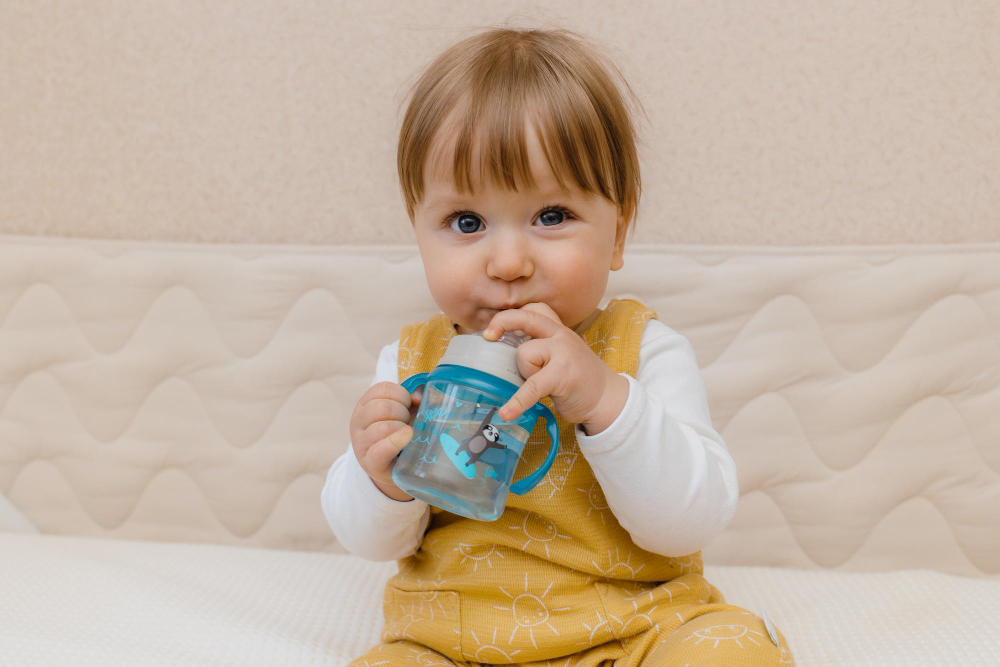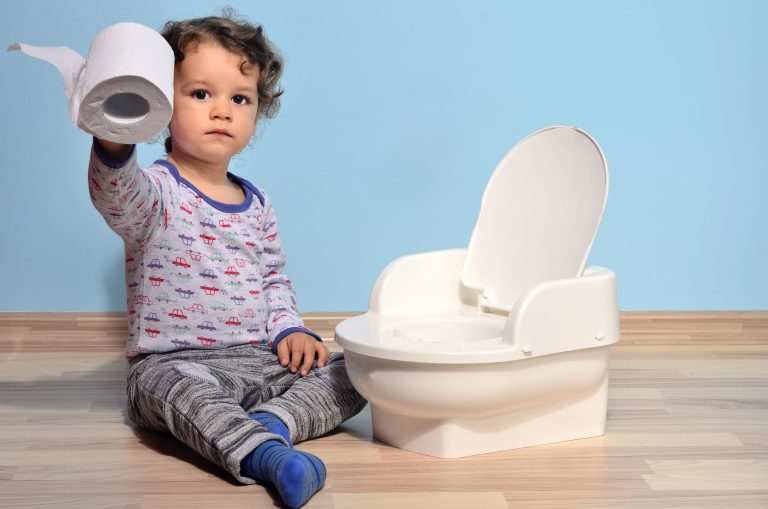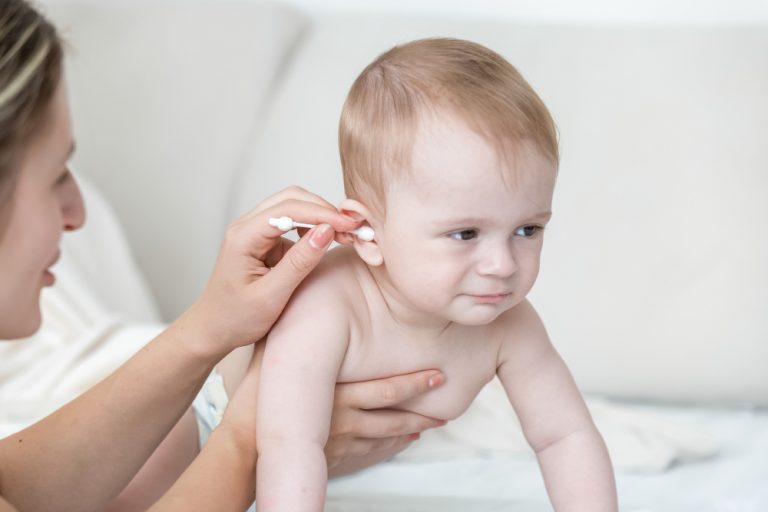When Can Babies Drink Water? Introducing Water To Babies
Have you ever wondered when can babies drink water? As a parent, it’s natural to want to ensure your little one is healthy and thriving. Knowing the right time to introduce water to your baby is crucial for their development and well-being.
Babies have different hydration needs than adults. While offering water early on may seem harmless, there are specific guidelines and considerations to keep in mind.
In this blog, we will delve into the essential aspects of introducing water to babies, including the appropriate age, safe practices, signs of readiness, and why it’s important to wait before offering water. By understanding these key points, you can provide your baby with the proper nourishment and hydration they need at the right time.
Stay tuned as we explore expert advice on when can babies drink water, an important milestone in your baby’s development. Let’s ensure your little one stays hydrated and healthy with the right information at your fingertips.
Introducing Water to Babies
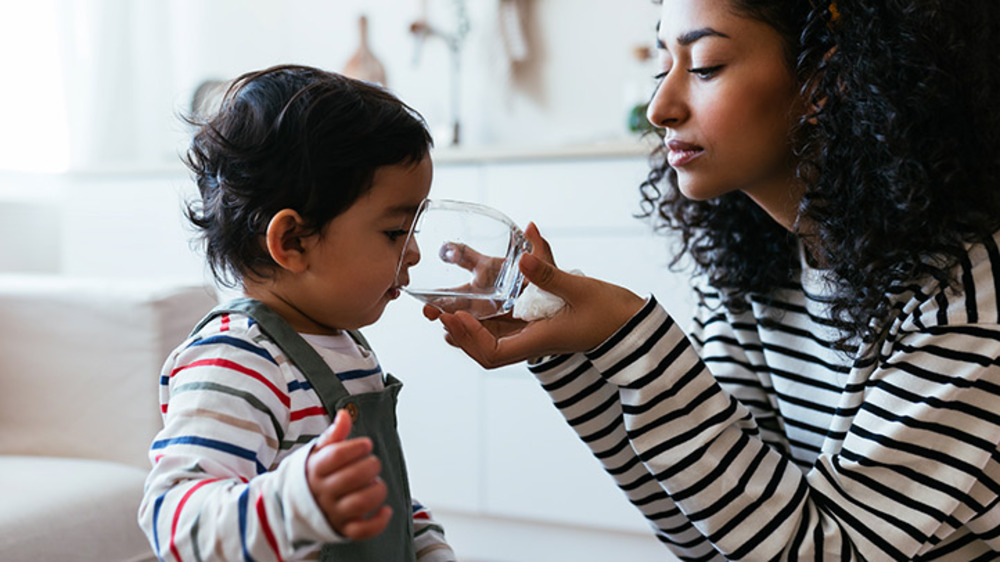
As parents, it’s essential to ensure that our babies receive the necessary hydration for their overall health and well-being. Introducing water to your baby is an important milestone, but it’s crucial to do it at the right time and in the right way.
This article aims to provide you with a comprehensive guide on how and when can babies drink water.
Babies younger than 6 months old have their hydration needs met through breast milk or formula, which provides them with all the necessary nutrients. Experts, including the American Academy of Pediatrics, do not recommend introducing plain water before this age. Water can fill up their tiny stomachs, leaving less room for the essential nutrients they need for growth and development.
Once your baby reaches around 6 months of age and you have started introducing solid foods, it may be appropriate to offer small amounts of water. However, it’s essential to do so in a safe and controlled manner while still prioritizing breast milk or formula as the primary source of hydration.
By understanding the appropriate age to introduce water and following the guidelines provided in this article, you can ensure that your baby stays hydrated and healthy. Remember, every baby is unique, so it’s always best to consult with your child’s pediatrician to determine the best approach for introducing water to your little one.
Why Water is Not Suitable for Babies Younger Than 6 Months
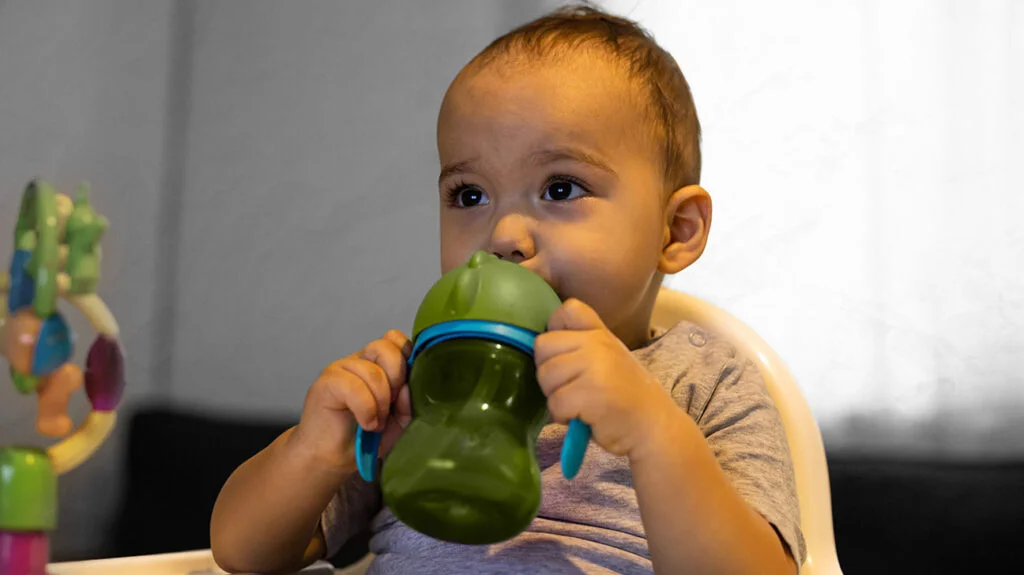
Experts generally do not recommend introducing water to babies before the age of 6 months. Here are a few reasons why it’s important to wait until your baby is developmentally ready:
Impact on Nutrition
- Babies obtain their primary source of nutrition from breast milk or formula.
- These provide all the essential nutrients and hydration they need during the first six months of life.
- Introducing water too early may interfere with their intake of breast milk or formula, leading to reduced nutrient intake.
Immature Digestive System
- The digestive system of infants is still developing, and introducing water too soon can put additional stress on their immature organs.
- It may disrupt the delicate balance of their digestive system and lead to issues such as diarrhea or electrolyte imbalances.
Increased Risk of Water Intoxication
- Babies have a smaller body weight and limited kidney function compared to older children and adults.
- Giving them too much water can dilute their electrolyte levels, triggering a potentially life-threatening condition known as water intoxication.
- This is why it’s crucial to follow the guidance of healthcare professionals and avoid offering water to young babies.
It’s important to note that these guidelines may vary depending on the specific needs and circumstances of your baby. Consulting with your child’s pediatrician is always recommended to ensure you are making the best decisions for their individual development and well-being.
Remember, breast milk or formula should be your baby’s main source of hydration during the first six months. By waiting until they are developmentally ready, you can ensure their nutrition and hydration needs are met effectively and safely.
When Can Babies Drink Water?
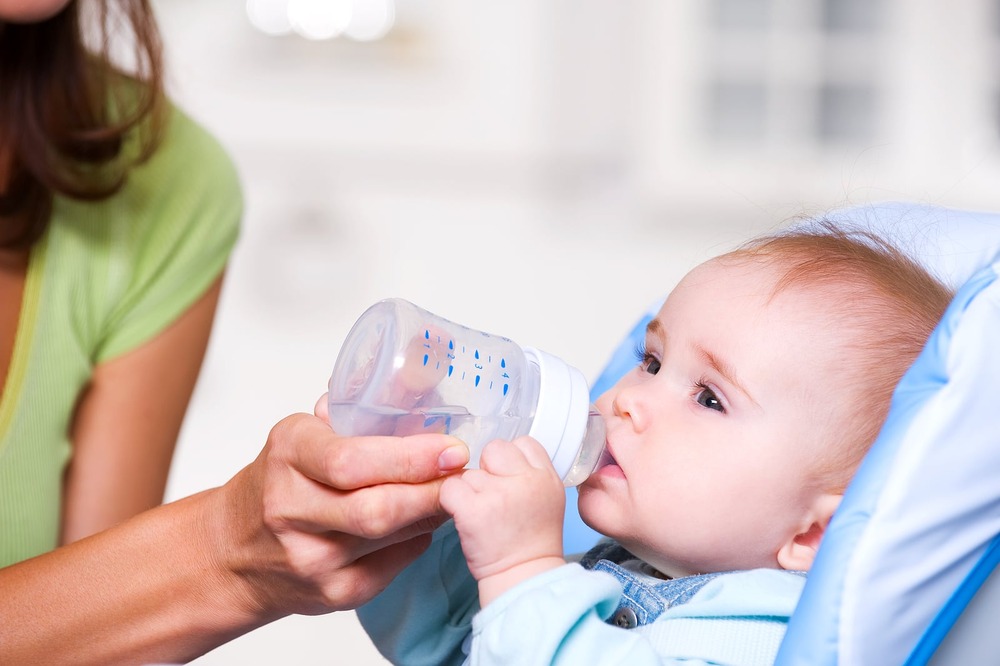
Introducing water to babies is an important milestone, but it’s crucial to do it at the right time and in the right way. While it may be tempting to offer water to your little one, it is recommended to wait until they are around 6 months old before introducing it.
- Babies receive all the hydration they need through breast milk or formula during the first six months of life.
- Water, on the other hand, can fill up their tiny bellies, leading to decreased intake of essential nutrients from milk feeds.
- Additionally, giving water to infants too early can disrupt their delicate electrolyte balance and put them at risk of water intoxication.
Around the age of 6 months, babies enter a stage where they start showing signs of readiness for additional fluids.
It is essential to wait for this stage to ensure that their digestive system is prepared for the introduction of water. Some signs to look out for include good head control, the ability to sit up with support, and an interest in solid foods.
- Once your baby is ready, offering small amounts of water alongside their solid foods can help meet their hydration needs.
- Start with a few sips from a cup, preferably a straw or sippy cup, giving them the opportunity to practice drinking from an open cup.
- Gradually increase the amount of water as they become more comfortable.
Remember, while introducing water, it’s essential to continue offering breast milk or formula as their primary source of nutrition. Water should complement their diet and not replace any feeds. Consult with your child’s pediatrician if you have any concerns or questions about introducing water to your baby.
By waiting until the appropriate age and following these guidelines, you can introduce water safely to your baby, ensuring they stay hydrated and healthy.
How Much Water Should Babies Drink?
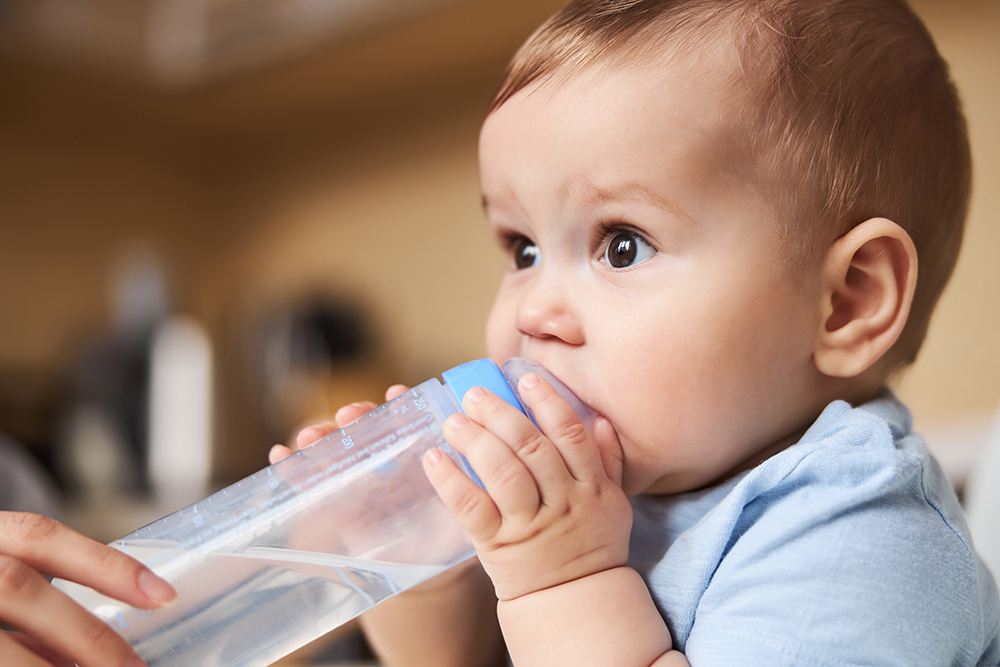
Proper hydration is crucial for babies as they grow and develop. Once your baby is ready to drink water, it’s important to provide an appropriate amount to support their needs.
Here’s a guide on the recommended water intake for babies, considering their age and developmental stage.
1. Babies Under 6 Months
- Babies younger than 6 months primarily receive all the necessary hydration from breast milk or formula.
- Water should be avoided during this period as it can fill up their little tummies.
- This leaves less room for the essential nutrients and calories in breast milk or formula.
2. Babies 6 to 12 Months
- Once your baby reaches the age of 6 months, you can start gradually introducing small amounts of water.
- Aim for around 2-4 ounces of water per day, spread throughout the day.
- This will help familiarize them with the taste of water and prepare them for independent drinking skills.
3. Babies 12 Months and Older
- As your baby grows and starts eating solid foods, their water intake can increase.
- Offer water in a cup alongside meals and snacks, encouraging them to drink when they are thirsty.
- On average, a one-year-old baby should consume approximately 8-10 ounces of water per day.
- However, it’s essential to maintain a balance between water intake and milk feeds.
Remember, every baby is unique, and their water needs may vary. It’s crucial to pay attention to their thirst cues and consult with their pediatrician for personalized guidance.
By ensuring that your baby receives enough water while maintaining a suitable balance with their milk feeds, you can promote proper hydration and support their overall health and well-being.
Introducing water to babies is an important milestone that should be approached with care. Following the recommended guidelines for water intake, based on their age and developmental stage, helps to ensure that your little one stays adequately hydrated.
Remember to consult with your pediatrician for personalized advice and monitor your baby’s thirst cues to provide them with the necessary fluids.
How Should I Offer Water to My Baby
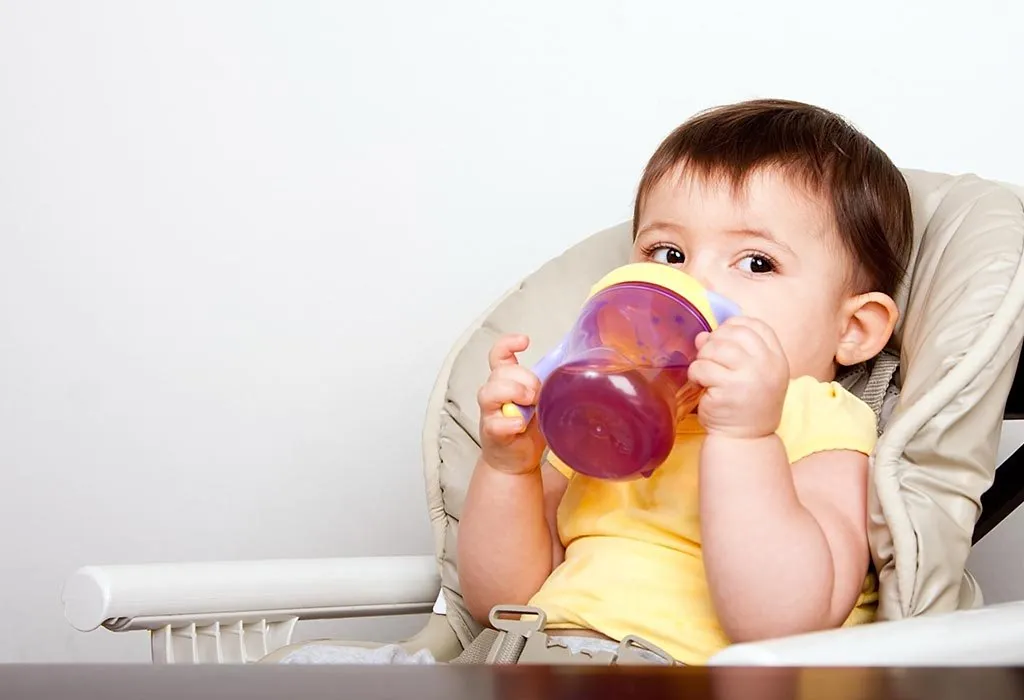
Introducing water to babies is an important step in their development, but it’s essential to do it in a way that is safe, hygienic, and appropriate for their age.
Here are some methods you can consider to offer water to your baby:
Offer Water at Meals and Snacks
- When your baby starts solids, you can begin offering them small sips of water alongside their meals.
- This helps them get accustomed to the taste and texture of water while staying hydrated.
- Use a small open cup or a sippy cup with a soft spout to make it easier for them to drink.
Use a Cup
- As your baby grows older and more coordinated, you can introduce them to drinking water from a cup.
- Start with a small plastic or silicone cup with handles, which they can hold and drink from with your assistance.
- Encourage them to take small sips and praise their efforts.
Consider Foods with High Water Content
- Certain foods contain a high amount of water, making them a great source of hydration for your baby.
- Offer water-rich fruits like watermelon, cucumber, and oranges, which can both hydrate and provide essential nutrients.
- You can also try making smoothies or popsicles using pureed fruits and water, an enjoyable and refreshing way for your baby to consume water.
Keep Water Available Throughout the Day
- To ensure your baby stays hydrated, make water easily accessible throughout the day.
- Offer it in a bottle or a sippy cup filled with a small amount of water.
- Refrain from filling it up too much, as this can lead to overconsumption.
- Encourage your baby to drink small amounts of water whenever they show signs of thirst.
Remember, always monitor your baby’s water intake and avoid excessive amounts that may interfere with their milk feeds or cause water intoxication. Follow your pediatrician’s guidance on the appropriate amount of water based on your baby’s age and developmental stage.
By offering water in various ways, you can help your baby develop healthy hydration habits. With time and practice, they will become more comfortable and independent in drinking water from different sources.
6 Major Signs of Dehydration in Babies

Dehydration in babies is a serious concern that should never be ignored. It is essential for parents to be aware of the signs and symptoms of dehydration in order to ensure prompt medical attention and prevent any complications.
Here are some common signs to watch out for:
1. Dry Mouth and Lips
- A baby who is dehydrated may have a dry or sticky mouth and lips.
- This is a result of reduced saliva production and can be an early indicator of dehydration.
2. Decreased Urination
- Keep an eye on your baby’s diaper output.
- If you notice a significant decrease in the number of wet diapers or the urine appears concentrated and dark yellow, it could be a sign of dehydration.
3. Sunken Fontanelle
- The fontanelle, the soft spot on your baby’s head, may appear sunken if they are dehydrated.
- Gently touch and observe the fontanelle’s shape and position.
- If it seems noticeably sunken, contact your healthcare provider.
4. Irritability and Lethargy
- Dehydration can make babies fussy, irritable, and unusually tired.
- If your baby seems unusually cranky or lethargic, it could be a sign of dehydration.
5. No Tears When Crying
- Babies produce tears to keep their eyes lubricated.
- If your baby is dehydrated, they may have reduced tear production, resulting in little or no tears when crying.
6. Decreased Elasticity of the Skin
- Dehydrated babies may have skin that appears less elastic.
- When you gently pinch and release the skin on their arm or abdomen, it may take longer to return to its normal position.
Remember, these signs are not exhaustive, and it’s important to trust your instincts as a parent. If you suspect your baby is dehydrated, seek medical advice immediately. Dehydration in babies can be serious and require medical intervention to ensure their well-being.
When Should I Introduce a Cup
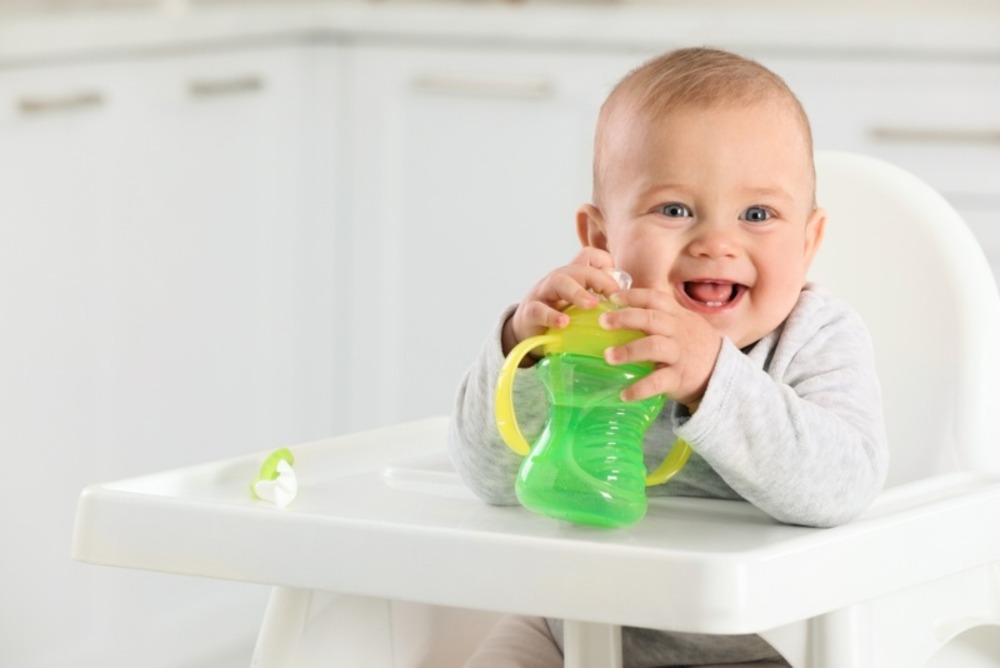
Introducing a cup to your baby is an important step in their development and transition from bottle or breastfeeding to independent drinking. While every baby is different, there are general guidelines to follow when it comes to introducing a cup.
Here are some tips to help you determine when and how to introduce a cup to your little one:
Signs of Readiness
Observing your baby’s developmental milestones can provide clues about their readiness to start using a cup. Some signs that your baby may be ready include:
- Your baby should have good head control and be able to sit upright with minimal assistance.
- Babies often mimic their parents’ actions. If your little one is fascinated by your cup and tries to grab it, it may be a sign that they are ready to use their own.
- Your baby should be able to grasp and hold small objects, such as toys or spoons.
Age Range
Most babies are ready to start using a cup between 6 and 9 months of age. However, it’s important to remember that readiness can vary from baby to baby. Some babies may show signs of readiness earlier, while others may need more time.
Cup Options
When selecting a cup for your baby, consider the following options:
1. Training cups
These cups often have handles, spill-proof lids, and soft spouts, making them ideal for beginners.
2. Straw cups
These cups can help babies develop oral motor skills and promote independence. Look for straw cups designed for easy sipping.
3. Open cups
As your baby gets older and more confident with drinking, you can introduce open cups to teach them how to drink without spouts or lids.
Introducing the Cup
Here are some tips for a successful cup introduction:
1. Start with small amounts
Begin by offering a few sips of water or breast milk in the cup during meal times.
2. Be patient
Your baby may need time to adjust to the cup. Offer the cup regularly, but don’t force it if they aren’t interested.
3. Make it fun
Use colorful cups or cups with their favorite characters to make the experience enjoyable.
4. Role model
Demonstrate how to drink from a cup by taking sips yourself. Babies often learn by imitating their caregivers.
Remember, every baby is unique, and the timeline for cup introduction may vary. Trust your instincts and consult with your pediatrician if you have any concerns or questions.
By gradually introducing a cup at the right time and in a positive manner, you can help your baby develop important drinking skills and facilitate their independence.
Key Takeaways: When Can Babies Drink Water

Introducing water to babies is an important milestone in their development, but it’s essential to do it at the right time and in the right way. It’s always helpful to understand when can babies drink water. Here are the key takeaways from this article:
1. Wait until your baby is at least 6 months old
2. Introduce water when your baby shows readiness
3. Offer water alongside solid foods
4. Balance water intake with milk feeds
5. Choose the right method for offering water
6. Watch for signs of dehydration
Remember, every baby is unique, so consult with your pediatrician to determine the best approach for introducing water based on your baby’s individual needs. With proper guidance and care, you can ensure your baby stays hydrated and healthy.

